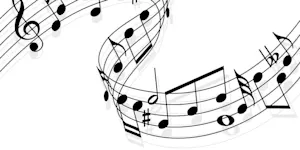What Makes This Word Tick
"Maudlin" evokes a sense of tearful sentimentality, often portraying excessive emotion that can make one appear foolish or overly dramatic. It's the kind of word that creeps in when emotions overflow, like at a melodramatic movie ending or after a glass too many of wine.
If Maudlin Were a Person…
Maudlin would be that friend who's first to cry during a sappy commercial, never afraid to wear their heart on their sleeve. They'd be the type to send heartfelt messages on a whim and host movie nights highlighting tearjerkers.
How This Word Has Changed Over Time
Originally derived from the name Mary Magdalene, who was often depicted weeping, "maudlin" has shifted from a religious connotation to describe the sort of sentimentality that borders on the overly emotional or sappy.
Old Sayings and Proverbs That Use Maudlin
While not prominent in proverbs, you might think of phrases that could capture the sentiment of being overly emotional, like "wearing your heart on your sleeve."
Surprising Facts About Maudlin
What's surprising about this word is its religious origins. Mary Magdalene, a Biblical figure often in tears, influenced the adjective, shaping it into a term that captures both genuine emotion and perhaps the excess thereof.
Out and About With This Word
You might encounter "maudlin" when a critic describes a film or book that tugs too hard on heartstrings or perhaps when literary circles discuss over-the-top romantic plots.
Pop Culture Moments Where Maudlin Was Used
A classic example could be the criticism of films like "The Notebook" or "Titanic," where "maudlin" might be thrown around to describe scenes designed to extract tears from even the sturdiest viewers.
The Word in Literature
"Maudlin" often appears in novels and plays where characters might indulge in self-pity or excessive displays of emotion, like many dramatic Victorian novels or modern dramas focusing on personal crises.
Moments in History with Maudlin
Consider the overly dramatic speeches or letters penned during times of unrequited love or heartbreak in wartime correspondence, moments where "maudlin" could perfectly caption the sentiment.
This Word Around the World
In various languages, "maudlin" may adopt forms influenced by cultural idioms regarding emotion—like the overuse of "dramatic" in English or "überemotional" in German contexts.
Where Does It Come From?
"Maudlin" traces back to Mary Magdalene's depiction in art and literature as a penitent weeping figure. Over time, this led to the adjective used to mockingly describe overwrought emotion.
How People Misuse This Word
People sometimes use "maudlin" to describe any display of emotion, not realizing it implies an excess or lack of authenticity—it's not just about emotion, but about its overwhelming nature.
Words It’s Often Confused With
Sentimental: While "sentimental" can be positive, "maudlin" implies excessive or exaggerated sentimentality.
Mawkish: "Mawkish" shares a similar meaning but often carries more negative connotations of nausea-inducing sweetness or insipidity.
Melodramatic: Both imply excessive emotion, but "melodramatic" often suggests theatricality, while "maudlin" sticks to sentimentality.
Additional Synonyms and Antonyms
Synonyms for "maudlin" include "soppy," "weepy," and "overemotional." Antonyms would be "stoic," "unemotional," and "indifferent."
Want to Try It Out in a Sentence?
"After finishing the novel, she found herself in a maudlin state, clutching tissues and sighing dramatically at the emotional whirlwind of characters’ lives."
















